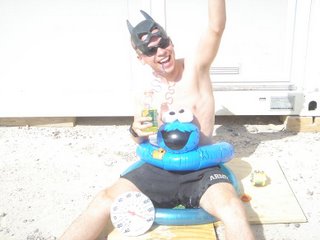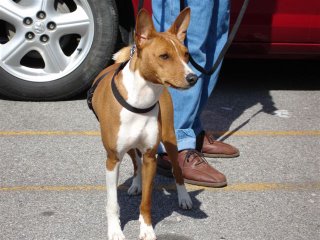 Camping trip this weekend
Camping trip this weekend We have a few new scouts, so I am trying to include a little more information than usual in this E-mail. Please call me (601-638-4429 home or numbers below) or Mike Rasch, Scoutmaster (601-634-6294 home) if you have questions.
We will be camping at the Rainwater Observatory at French Camp, MS. It is on the Natchez tract between Jackson and Tupelo. We will use this opportunity to complete most of the requirements for the Astronomy Merit Badge. Other groups will be there (that got on the list first), so observatory personnel will have minimum time to be involved with us. Rainwater observatory is the premier astronomical observatory in Mississippi, and the boys will have a chance to look through some of their large, sophisticated telescopes at some point during the weekend. I will use both Friday and Saturday nights (if they are clear) and Saturday during the day to work on completion of many of the merit badge requirements. To finish this Merit Badge, scouts will be required to spend additional time on their own doing night time observing and daytime research.
Leave and Return – We will leave Friday evening. Please be at Porter’s Chapel Church by 4:45PM on Friday 5/5/06 so that we can leave by 5PM. We will need to hustle to try to be able to set up camp before dark. We will plan to return to PCUMC Sunday 5/7 in the early afternoon. We try to have the Scouts call their parents when we are 15-20 minutes out of town so parents can meet us at the church.
Cost – cost will be $18 per person (gas is going up). You can give me a check on Friday or Sunday, or we will just debit your scout acct. I prefer the latter since I won’t need to be dealing with a wad of checks, but will be happy to take the money if you want to give it to me. Our treasurer tries to get out information a few times a year as to the status of each scout’s and leader’s scout acct, and payments (or reimbursements) can be made then if necessary.
What to bring – scouts should bring their standard personal gear (clothes for three days, sleeping gear, toiletries, personal camping gear (pocket knife, scout handbook, compass, flashlight, canteen, etc). For new scouts – call the Scoutmaster or me if you have questions about what to bring, or check your scout handbook. Note to mothers – please get in the habit of insisting that your scout pack his own gear. If he forgets to pack his tooth brush or underwear, then he’ll just do without them for the weekend. No big deal. He will learn an important lesson, you will be relieved of one more burden, and we won’t be stuck when we are breaking camp of holding up a dirty, muddy sock and saying “All right, whose is this?” and everybody shrugging and walking away because the scouts don’t know what they’ve brought.
Wear - Scouts should plan to wear their class A shirts (Scout uniform) on the trip up on Friday and home on Sunday. Bring your class B red or green Troop 638 tee shirts to wear on Saturday.
Tents – we have scout tents, and the boys will sleep 1 or 2 to a tent (depending upon the number of boys). Scouts are welcome to bring their own tents if they have them and know how to set them up. Most leaders bring their own tents (because they like more room). It is BSA policy that scouts and leaders do not sleep in the same tent unless they are father and son.
Cook and eating ware – The troop has all the cookware and eating ware that the boys need.
Non-standard things to bring – Bring a sack supper for Friday night, something the scouts can eat on the drive up. If the scouts do not have the Astronomy Merit badge Worksheet that was passed out at the meeting a week ago, they should download one from
http://www.meritbadge.com/. If they do not have the spring sky maps that were passed out at the meeting they should go on the Web and find a star map. These can be found on many websites. Just do a Google search for “star maps” or “sky charts”, etc. They should bring the worksheets with clipboard, the star maps, and a pen/pencil. They should have a weak flashlight (for reading their star map at night without screwing up their night vision.) If you have a piece of red cellophane, you can rubber band it over the flashlight lens. – But don’t bother to go out and buy a roll of red cellophane if you don’t happen to have some. Duct tape or your hand will do just fine. If they have a pair of binoculars or telescope, they can bring them IF THEY ARE USE TO USING THEM to look at the night sky. If not, I’d rather not be stuck with having to figure out how to set up a half dozen telescopes in the dark and then actually using them to find celestial objects. (It’s not that easy.) I will bring a small (bird watching) telescope that we will use to look at Jupiter and Saturn, and we should be able to get some time on the big telescopes.
Before the camping trip – All the boys should spend a minimum of 30 minutes to an hour outside some clear night before the camping trip with their sky maps looking up at the heavens. (They have been told this). At a minimum, they should be able to orient their star maps and be able to use them to find constellations. They should be able to know what the Big Dipper (Ursa Major) looks like and be able to find it with no difficulty (on a clear night). Hint – it is just north of straight overhead in the spring evening sky. They should be able to use the Big Dipper to find the North Star and the Little Dipper (Ursa Minor). Hopefully, some of the boys will be inspired to go further. (That’s the whole goal). Other prominent constellations in the spring sky that they may then want to look for are Bootes and Leo. From there, with a map, they should be able to identify many other constellations. Mars, Jupiter and Saturn are all visible and prominent in the evening sky this month. With a little searching on the web, the boys can find star maps showing the exact locations of these planets. Mars is in Gemini (near the stars Caster and Pollux), Saturn is in Cancer, and Jupiter is in Virgo (near the star Spica). For the next few nights the moon will be approaching first quarter and passing through Gemini and Cancer and into Virgo.
In addition, for those boys that want to complete the Astronomy Merit Badge (I expect that only some of the boys will be really interested in completing it), they should do a web search to find the information to complete Requirement 5b in their Astronomy Merit Badge Worksheet. 5b) - Find out when each of the five most visible planets that you identified in requirement 5a will be observable in the evening sky during the next 12 months, then compile this information in the form of a chart or table. Update your chart monthly to show whether each planet will be visible during the early morning or in the evening sky.
Again – absolute minimum requirements: 30 minutes some night, understand their star map, know the Big Dipper, find Polaris (north star). Please insist that your scout(s) complete at least this much.
Contact Information: I will have my cell phone (number below), Mike Rasch cell phone (601-218-1403) or you can call the observatory:
Rainwater Observatory1 Fine Pl.French Camp, MS 39745Phone: (662) 547-6377Fax: (662) 547-6302E-Mail:
info@rainwaterobservatory.orgJames G. Hill, Director





